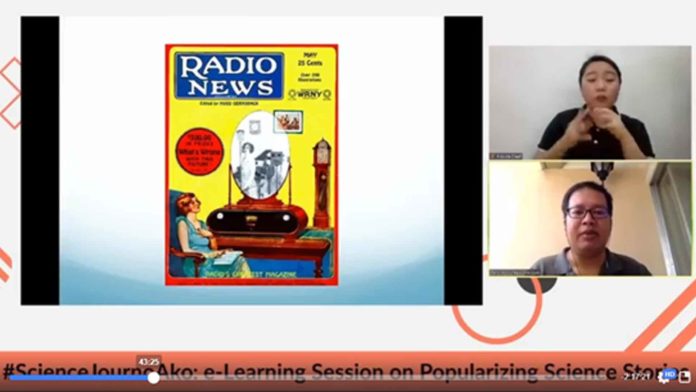Countless hours have been spent by our premier scientists, engineers, and medical experts just to protect us from the possible harm caused by Coronavirus Disease or COVID-19. Several innovative science and technology (S&T) solutions have been initiated and developed that would give the public a better chance to win against this pandemic.
However, we are also confronted by another enemy, the widespread disinformation and misinformation about this pandemic, causing people to be anxious, to panic, and to make wrong decisions that affect their lives negatively.
To address this issue, the Department of Science and Technology-Science and Technology Information Institute (DOST-STII) took the pandemic as an opportunity to reach out to those staying at home to be properly informed of the health emergency and what the DOST and its agencies are doing to find solutions to COVID-19.
The DOST-STII, recognizing the significance of getting science-based information from reliable sources about COVID-19, conducted an e-learning session with high school teachers from Central Luzon in partnership with the DOST Region III on 03 July 2020 via a Facebook Closed Group.
With the theme #ScienceJournoAko: Popularizing Science Stories in a Changing Environment, the webinar focused on the importance of crafting accurate and easy to understand science-related stories in countering “fake news” and promoting science, technology, and innovation to a wider audience. More than 500 high school teachers from different schools in the provinces in Central Luzon attended the webinar.
Timothy James M. Dimacali, a Fulbright scholar from Massachusetts Institute of Technology (MIT) and founding editor of the SciTech section of GMA News Online, shared various techniques and his extensive knowledge on how to create news and feature stories out of scientific researches, papers, and journals that can be transformed into easy-to-read stories suitable for newspapers, magazines, online news sites, and social media.
In his message, DOST-STII Director Richard P. Burgos stressed that communicating science in a manner that is easy to understand is important and knowing the facts and figures behind the science is not enough to effectively engage the public to appreciate and use science, technology, and innovation.
“I strongly believe that it is equally important for us who are engaged in science communication to be able to create compelling science stories that will have a positive impact on our lives and other people’s lives,” Dir. Burgos said.
Meanwhile, DOST Region III Director Dr. Julius Caesar V. Sicat emphasized that DOST has been developing appropriate solutions to existing problems and limitations of some areas in the country particularly during this time of health emergency brought about by COVID-19.
“Producing a pool of science communicators and journalists would be a great help for the public in order for them to be guided and have a clear understanding of the practical benefits in their lives, of those innovative technologies introduced and made by our local scientists,” Dr. Sicat said.

Tips in Popularizing Scientific Paper/Journals
In his lecture, Dimacali shared useful techniques for a science writer, particularly in finding a story angle. He explained that figuring out your target audience greatly simplifies the process of finding a good story angle. However, he added that regardless of your target audience is, the human interest angle almost always works.
Dimacali also said that learning to read a scientific paper in the right way can help us in producing compelling stories that are relatable to a larger audience.
“When we read scientific papers, there are things that we might focus to clearly understand its main idea or concept. It includes references because it might help guide you on what is previously known or understood about the topic and acknowledgments because it might contain the researchers’ inspirations or motivations in publishing the study,” Dimacali shared.
Meanwhile, Dimacali also pointed out in his presentation that scientific analogies are valuable tools to help readers understand complex ideas.
“Though I would like to remind everyone that because of their simple nature, analogies are not perfect, there will always be some details that are omitted for sake of simplicity. For the analogy to work, it has to convey the main idea,” said Dimacali.
This is the third of a series of webinars on science communication organized by th DOST-STII to enhance the skills of aspiring science communicators and journalists in creating compelling science-related content. The first two focused on the importance of science blogging in the time of pandemic and harnessing the power of social media platforms like Twitter and Instagram to create S&T stories.
For more information and requests on the webinar series on science communication, kindly visit the Science Journo Ako Facebook page or the DOST-STII Facebook page.






